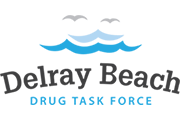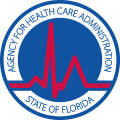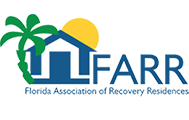People from all over the country are flocking to Delray Beach, Florida – not to lie out on Florida’s famous white sand beaches or ride the waves of the Atlantic, but to enter treatment for an addiction to drugs or alcohol.According to a Nov. 16, 2007 article in The New York Times, experts have named Delray Beach the recovery capital of America. Labeled “a funky outpost of sobriety between Fort Lauderdale and West Palm Beach” and a “town of second chances,” Delray Beach is known as a vibrant recovery community. Its safe, nurturing environment is highly supportive of recovering addicts, with hundreds of halfway houses and sober restaurants, clubs, recovery radio shows, and coffeehouses on every corner.
Residents of Florida are fortunate to have world-class treatment at their fingertips, but that hasn’t stopped out-of-state and international residents. They are moving to Florida in record numbers, seeking sunny skies and some of the best drug rehab facilities in the country. As a popular tourist destination, part-time jobs are plentiful and living accommodations are affordable, and the weather is difficult to beat.
Seeking Safety in Numbers
There are numerous advantages to receiving addiction treatment in a popular recovery destination like Delray Beach, Florida. In addition to an unbeatable climate year-round, a relaxing natural environment, and easy access to Florida’s sun, sand, and surf, a burgeoning recovery community makes it easier for newly sober individuals to stay sober and avoid relapse.
Because addiction is a chronic, relapsing disease, many recovering addicts find it easier to make permanent lifestyle changes in a new environment. When newly sober individuals return home immediately, they often face the same triggers, cravings, and drug-abusing friends that led to the need for substance abuse treatment in the first place.
Addicts and alcoholics find safety in numbers in Delray Beach, where it is common to find others reading the “Big Book” at a coffeehouse or sharing stories at local restaurants for a weekly Alcoholics Anonymous meeting. Reports suggest that more than 5,000 locals attend 12-step meetings each week, with almost 200 weekly AA meetings to choose from. While some individuals stay in Florida just long enough to cement their recovery efforts and return home, an estimated 65,000 people make Delray Beach their permanent home.
“This community is one big helping hand that is always open,” Mike Devane, a halfway house owner, told Times writer Jane Gross.
The “Florida Model” of Addiction Treatment
Florida is a place known for holistic health and healing, with many addiction treatment programs (like Wellness Resource Center, a successful dual diagnosis program located just two miles from Delray Beach) offering meditation, nutritional therapies, and other interventions geared toward improving the mind-body connection. Developing a spiritual relationship with a “higher power” isn’t as difficult on the Florida beaches as it may be in more remote areas of the U.S., either.
The “Florida Model” of addiction treatment encourages addicts and alcoholics to commit to a period of primary care, and then a series of “step-down” levels of care, including extended care, transitional care (sometimes at a halfway house) and finding a part-time “recovery job.”
This series of steps allows the individual to gradually reduce the amount of structure and support he receives while slowly reintegrating back into the community.
The healing environment many recovering addicts find in Delray Beach helps them feel less “institutionalized” while in treatment and contributes to an overall sense of well-being and hope, which makes for a positive drug rehab experience, according to some individuals receiving drug treatment in the community.
More important is the close connections people make with fellow addicts in recovery, fighting the same battles, and offering each other 24/7 support.
Relapse is a serious concern for most recovering addicts, even those receiving comprehensive, long-term addiction treatment. Some people need a complete change of circumstances to find themselves and maintain sobriety. Finding a community that welcomes you with open arms and offers ongoing support for your mission to return to health can make the difference between a successful drug rehab experience and relapse.
As most addicts already know, the longer you can stay sober and feel productive in your life, the better your chances for long-term recovery.











